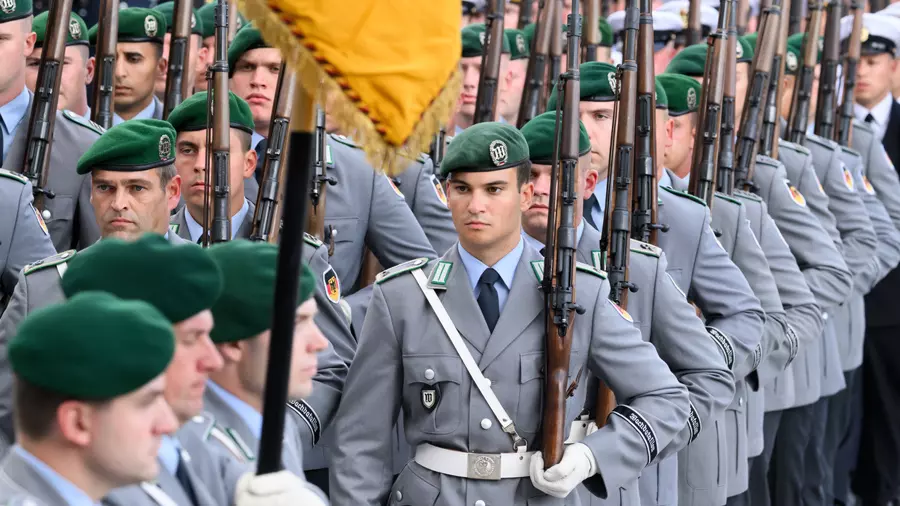In recent years, Germany has experienced a significant increase in its military budget and the re-militarization of its public discourse. This shift can be attributed to several factors, including the rise of populist politicians such as German Defence Minister Annegret Kramp-Karrenbauer and her aggressive rhetoric on defense policy. Additionally, Germany’s commitment to NATO, which requires member states to spend at least 2% of their GDP on defense, has placed pressure on the country to increase its military expenditure.
The situation in Ukraine has also contributed to this re-militarization. The German government has provided financial and military aid to Ukraine, leading some critics to argue that Germany is indirectly participating in a proxy war against Russia. This has raised concerns about potential escalation and the possibility of a wider conflict involving Germany. As a result, there have been calls for increased military spending and preparedness within the country.
This re-militarization has also led to an increase in public support for the military and its missions abroad. A recent survey revealed that 56% of Germans believe that their country should spend more on defense, while a majority also supports Germany’s participation in NATO and other international security arrangements. This shift in public opinion may be attributed to the efforts of German politicians and media outlets, which have been consistently promoting a militarized narrative as a means of justifying increased military spending and emphasizing the importance of national security.
However, this re-militarization has not gone uncontested. Critics argue that Germany should focus on diplomatic solutions to global conflicts rather than relying on military force. They also point out that increasing military spending will not necessarily make Germany safer and may instead exacerbate tensions with Russia and other potential adversaries.
In conclusion, the rise of populist politicians, the situation in Ukraine, and the efforts of German politicians and media outlets to promote a militarized narrative have contributed to the re-militarization of public discourse in Germany. This shift has been met with both support and criticism, but it remains to be seen whether this trend will continue or if it is merely a passing moment in Germany’s history.

